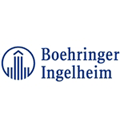
Boehringer Ingelheim, a global leader in animal health, announces that the Paul Ehrlich Institute (PEI), as the competent authority of the Reference Member State (Germany) under the Mutual Recognition procedure (MR), accepted new language on the label of Enterisol® Ileitis. The national marketing authorization is granted pursuant to the Animal Health Act (TierGesG) and the Animal Vaccine Regulation. The PEI confirmed that Enterisol® Ileitis reduces prevalence of Salmonella infection and Salmonella seroprevalence at slaughter.

The request for a variation to the Enterisol® Ileitis Summary of Product Characteristics to add new wording in the section ‘Immunological Properties’ was accepted by this competent authority and following completion of the MR procedure, identical authorizations will be granted in all EU Member States that have been included in the registration.
Ileitis caused by Lawsonia intracellularis is a costly disease affecting the digestive system of pigs in all pig rearing countries. Enterisol® Ileitis is the only global oral live Lawsonia intracellularis vaccine to control Ileitis in swine. Salmonella infections in swine can lead to both clinical disease, production losses and food safety risks in pork.
“This additional label language for Enterisol® Ileitis has been possible due to submission of both challenge studies and field observations in several countries. The studies showed that in pigs co-infected with both Lawsonia and Salmonella, vaccination with Enterisol® Ileitis reduced the prevalence of Salmonella infection and Salmonella seroprevalence at slaughter,” explains Dr Ricarda Deitmer, Enterics Technical Manager, Germany, Boehringer Ingelheim Animal Health.
Furthermore, several authorities (PEI and rapporteurs in the countries) confirmed that the oral administration of this live vaccine is leading to a modulation of the intestinal microbiome. The positive effect on the microbiome results in more short chain fatty acids producing bacteria, which in turn reduces Salmonella infections as demonstrated in a recent publication (Leite et al, 2018).
January 7, 2020 - Boehringer Ingelheim




